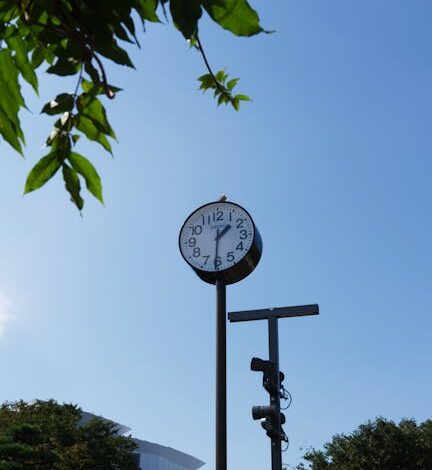Arsenal Boss Arteta Provides Gabriel Injury Update and Defends Gyokeres Amid 398-Minute Drought

Arsenal Boss Arteta Provides Gabriel Injury Update and Defends Gyokeres Amid 398-Minute Drought
Estimated Reading Time: 6 minutes
- Gabriel Magalhães’ absence was precautionary: Arteta confirmed the defender’s minor issue required careful management, ensuring a swift, full recovery without long-term concerns.
- Arteta staunchly defends Viktor Gyokeres: Despite a 398-minute goalless streak, the manager emphasized Gyokeres’ invaluable contributions beyond goals, including his work rate, hold-up play, and tactical importance.
- Focus on player welfare and holistic value: The incidents highlight Arsenal’s commitment to proactive injury management and valuing players for their all-round contribution, not just immediate statistics.
- Managerial support is crucial: Arteta’s public backing aims to alleviate pressure on Gyokeres, reinforcing confidence during a challenging period of form and fostering a positive team environment.
- Navigating challenges for title contention: The club’s strategic handling of both injury and form dips showcases a sophisticated approach to maintaining squad health and morale, vital for a demanding season.
Mikel Arteta, the astute manager of Arsenal, recently found himself addressing two critical aspects of his squad’s current standing: the fitness of key defender Gabriel Magalhães and the goal-scoring form of promising striker Viktor Gyokeres. As Arsenal navigates a crucial period in their season, updates on player availability and performance are paramount. Arteta’s candid insights offered a window into the club’s meticulous strategy and his unwavering belief in his players.
Gabriel’s Precautionary Absence and Swift Recovery
The sight of Gabriel Magalhães missing from the starting lineup, or indeed the squad entirely, sends a shiver down the spine of any Arsenal fan. The imposing Brazilian centre-back has forged a formidable partnership with William Saliba, becoming the bedrock of Arsenal’s defensive solidity. His absence immediately raises questions about the team’s ability to maintain its high standards at the back, especially during a demanding schedule.
Arteta, however, was quick to reassure supporters, confirming that Gabriel’s omission was a measure of caution rather than a severe setback. “Arsenal played it safe with their centre-back,” Arteta stated, highlighting the club’s proactive approach to player welfare. This strategic decision underscores the long-term view Arsenal takes with its key assets, prioritizing full recovery over risking further injury in a demanding season.
The manager elaborated on the nature of Gabriel’s issue, describing it as a minor concern that required careful management. In the intense world of Premier League football, even slight discomfort can escalate into prolonged absences if not addressed swiftly and intelligently. This meticulous approach ensures that when Gabriel does return, he is at 100%, ready to contribute fully without reservation. It reflects a deeper understanding of player physiology and the pressures of elite sport.
Arteta’s update suggests a short-term recovery period for Gabriel, indicating that he is not expected to be sidelined for an extended duration. This is welcome news for a team challenging for top honours, as defensive stability is often the foundation upon which title aspirations are built. The depth in Arsenal’s squad, with players like Jakub Kiwior and Takehiro Tomiyasu capable of stepping in, also provides a crucial safety net during such moments of concern.
The careful handling of Gabriel’s fitness is a testament to modern sports science and Arsenal’s medical team. It reflects a broader understanding within elite football that player health management is crucial for sustained success. Fans can breathe a sigh of relief, knowing their defensive lynchpin is being looked after with the utmost care and professionalism.
Defending Gyokeres: Trust Amidst the Goal Drought
While Gabriel’s situation was a matter of physical health, the discussion around Viktor Gyokeres delved into the psychological and performance aspects of a striker’s career. The Swedish international, known for his relentless work rate and clinical finishing, has recently endured a barren spell, failing to find the back of the net for 398 minutes. Such a drought can weigh heavily on a forward, attracting scrutiny from fans and media alike, often leading to increased pressure.
Arteta, however, exhibited steadfast loyalty and understanding. His defence of Gyokeres was not merely an act of solidarity but a nuanced appraisal of the striker’s contribution beyond goals. “He gives us so much,” Arteta affirmed, emphasizing Gyokeres’ all-round play, pressing, hold-up play, and ability to create space for others. These are often the unsung virtues of a centre-forward, equally vital to a team’s attacking machinery and overall tactical coherence.
The manager pointed out that goals are not the sole metric of a striker’s worth, particularly in Arsenal’s intricate attacking system. Gyokeres’ movement might be pulling defenders out of position, opening channels for wide players or midfielders to exploit. His physical presence, aerial threat, and willingness to run the channels are invaluable assets that contribute significantly to the team’s tactical framework, even without direct goal involvement.
Arteta also alluded to the cyclical nature of a striker’s form. Every forward, even the most prolific, experiences periods where the ball just doesn’t seem to go in. It’s during these times that a manager’s belief and unwavering support become crucial. By publicly defending Gyokeres, Arteta aims to alleviate external pressure and reinforce the player’s confidence, trusting that the goals will inevitably flow once again when his luck turns.
The manager’s comments serve as a reminder that football is a team sport, and individual statistics, while important, rarely tell the full story. Gyokeres’ effort and commitment have never been in question, and Arteta’s focus is on sustaining that mental fortitude. This approach is key to maintaining squad harmony and ensuring players feel valued regardless of their immediate goal tally, fostering a positive environment.
Navigating Challenges: Strategy and Unwavering Support
These two distinct situations — a key defender’s injury and a striker’s goal drought — encapsulate the constant challenges faced by a top-tier football club aiming for silverware. Managing player fitness and morale simultaneously requires a sophisticated blend of medical expertise, astute tactical acumen, and profound psychological insight. Arteta’s responses highlight a manager who is acutely aware of both the physical and mental demands placed upon his squad members.
For Gabriel, the strategy is clear: cautious recovery to prevent any escalation of a minor issue. For Gyokeres, it’s about unwavering support and reinforcing the broader value he brings to the team, irrespective of his current goal tally. Both approaches are meticulously designed to ensure Arsenal’s long-term competitive health and maintain the squad’s collective belief in their system and each other.
The Premier League season is an arduous marathon, not a fleeting sprint. Squad depth, coupled with the ability to intelligently navigate periods of minor injury or dips in individual form, are distinguishing characteristics of genuine title contenders. Arteta’s calm and reasoned explanations demonstrate a leader in control, making informed decisions that prioritize both individual welfare and the overarching team objectives, building a resilient unit.
Actionable Steps for Teams and Fans:
- Prioritize Player Welfare: Clubs must continue to invest heavily in sports science, cutting-edge medical facilities, and proactive injury management. Protecting key players from unnecessary risks through careful rotation, load management, and personalized recovery protocols is paramount for sustained success throughout a demanding season.
- Look Beyond Raw Statistics: Forwards, especially, are often judged solely on goals scored. Coaches, pundits, and fans should cultivate an appreciation for the broader contributions of players – their defensive work, crucial link-up play, tactical discipline, and ability to create space – all of which are equally vital to overall team performance and effectiveness.
- Maintain Unwavering Support: During lean spells, whether due to injury, a dip in form, or simply bad luck, a player’s confidence can plummet. Managers must publicly and privately back their players, demonstrating trust and understanding to help them overcome challenges. Fans, too, play a crucial role in providing positive reinforcement, creating an atmosphere of encouragement rather than criticism.
Real-World Example:
Consider Harry Kane’s goal drought at the start of the 2021-22 Premier League season for Tottenham. After a summer of intense transfer speculation, Kane famously failed to score in his first six league games. Despite immense media and fan pressure, managers Nuno Espírito Santo (and later Antonio Conte) consistently defended his overall contribution, highlighting his crucial link-up play and unwavering commitment to the team. Eventually, Kane rediscovered his prolific scoring touch, proving that consistent managerial support and inherent player resilience are key during such challenging periods.
Conclusion
Mikel Arteta’s recent press conference offered a valuable glimpse into the complex world of managing a top football club with ambitious goals. His measured approach to Gabriel’s injury, prioritizing long-term health and well-being, and his staunch defence of Viktor Gyokeres’ intrinsic value despite a temporary goal drought, collectively underscore a cohesive philosophy built on trust, strategic thinking, and comprehensive player development.
As Arsenal continues its demanding campaign, these moments of insightful leadership and empathetic player management are just as crucial as tactical brilliance on the pitch. The finely balanced blend of medical caution and unwavering conviction from the Arsenal boss is a clear signal of the club’s determination to succeed, navigating both the expected and unexpected challenges with resilience, intelligence, and a steadfast focus on the collective good of the squad.
What are your thoughts on Arteta’s handling of these two distinct situations? How crucial do you believe a manager’s public support is during a key player’s tough spell, whether due to injury or a dip in form? Share your opinions and insights in the comments section below!
FAQ: Frequently Asked Questions
- What was the update on Gabriel Magalhães’ injury?
Mikel Arteta confirmed that Gabriel’s absence was a precautionary measure due to a minor concern, not a severe injury. The club is taking a careful approach to ensure his full and swift recovery, preventing any long-term issues. - Why is Viktor Gyokeres being defended despite his 398-minute goal drought?
Arteta defended Gyokeres by highlighting his all-round contribution to the team beyond just goals. This includes his relentless work rate, hold-up play, pressing, and ability to create space for other players, all of which are crucial to Arsenal’s tactical system. - How does Arteta’s approach demonstrate Arsenal’s strategy in managing players?
Arteta’s approach shows a sophisticated blend of medical expertise for injury management (Gabriel) and psychological insight for morale (Gyokeres). It prioritizes long-term player welfare, instills confidence, and emphasizes the collective belief in the team’s system, crucial for navigating a demanding season. - What are the “Actionable Steps” recommended for teams and fans in the article?
The article suggests three actionable steps: 1) Prioritizing player welfare through sports science and proactive injury management, 2) Looking beyond raw statistics to appreciate players’ broader contributions, and 3) Maintaining unwavering support for players during tough spells to boost confidence.





